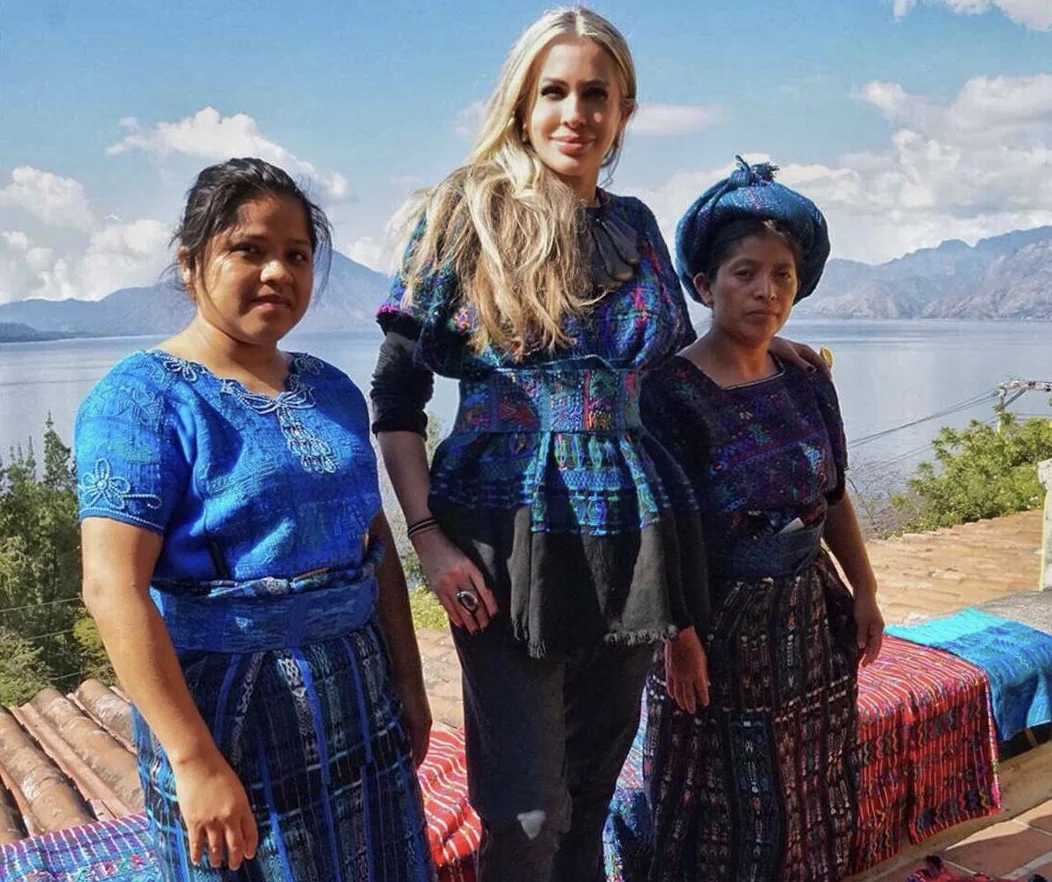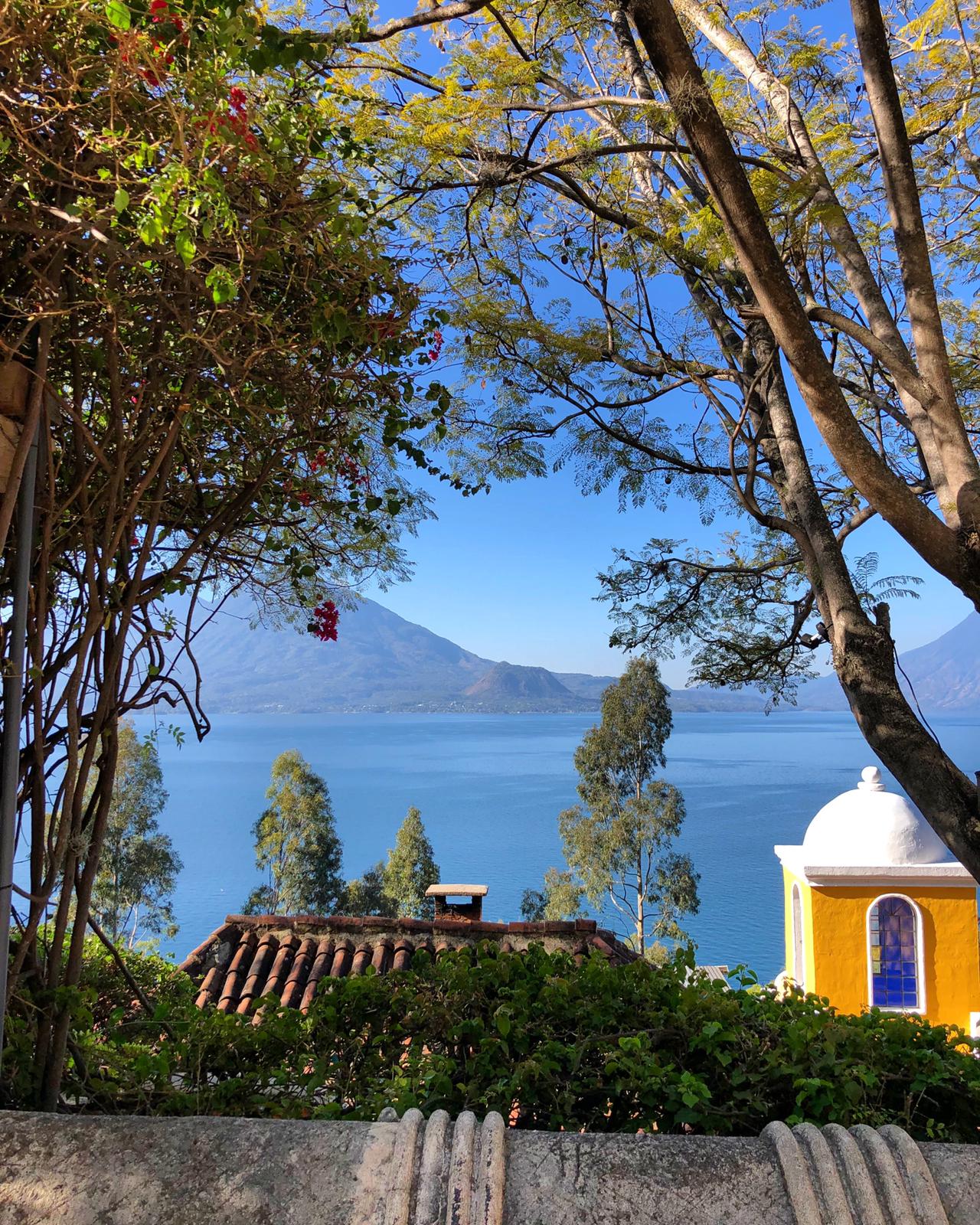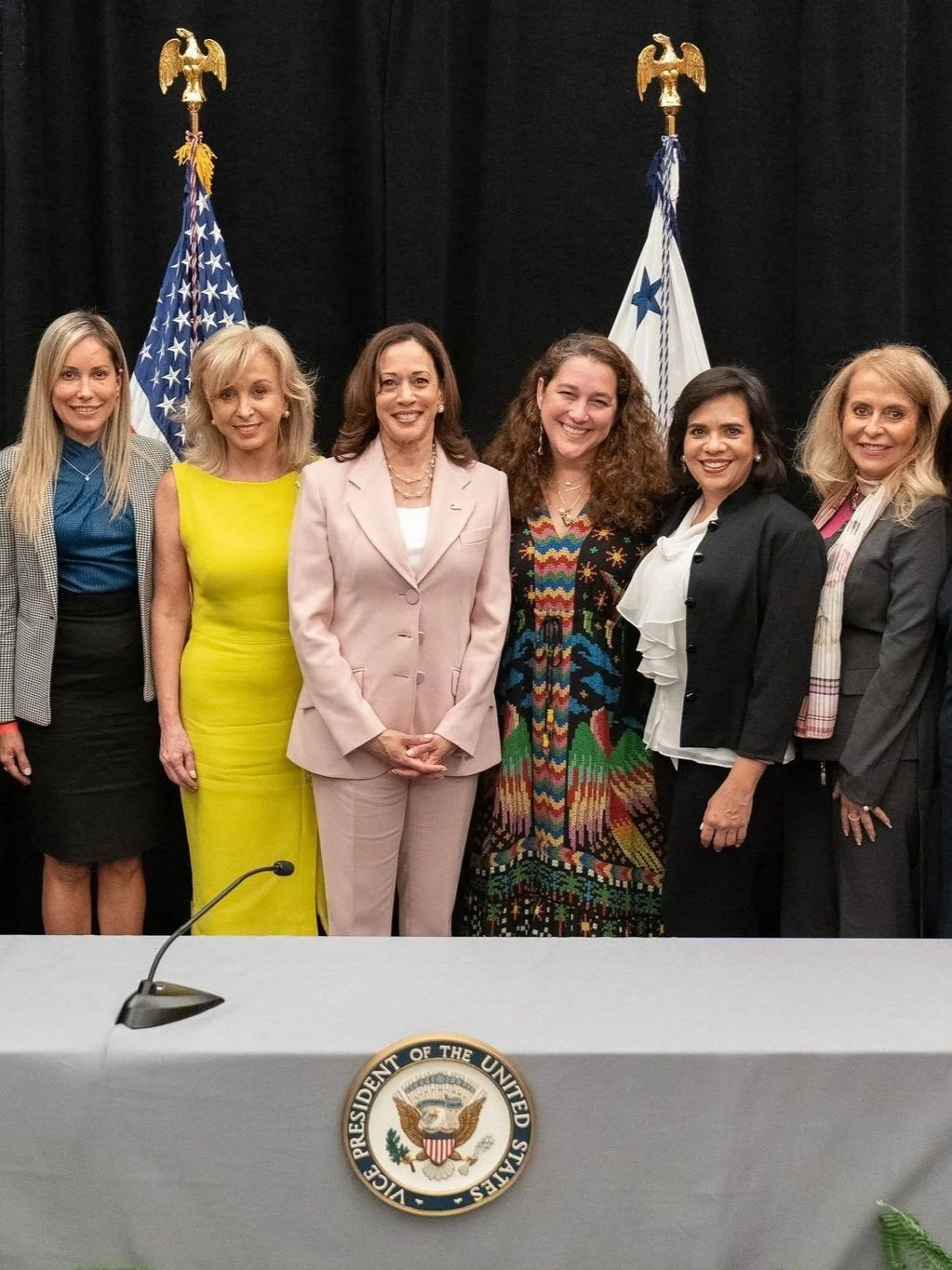Carmen pictured with local artisans wearing traditional Mayan dress.
When Guatemala’s Volcán de Fuego erupted back in June, it affected more than 1.7 million people. The highly active volcano had already erupted earlier in the year, but this was the most severe eruption in 45 years, leaving more than 165 people dead, several hundred missing and many injured, as well as some 13,000 displaced. Flows of mud and ash covered roads, and crops and bridges were destroyed. The country’s struggle to deal with the aftermath coincided with the CoutureLab Coalition’s first sustainability summit in Costa Rica, and in response, in addition to an immediate relief assistance plan, Carmen and her fellow coalition members elected to implement a broader strategy to support sustainable development initiatives in the region. This week, courtesy of local non-profit Pacunam, and in particular its President and coalition founding member Marianne Hernandez, the first step towards this long-term goal was achieved, with the launch of Couturelab Coalition x Guatemala 2019.
Eco-Age’s Livia Firth joined Carmen and other CoutureLab Coalition members on the inaugural trip.
Joined by fellow founding members Livia Firth of Eco-Age and legendary designer and Urban Zen cofounder Donna Karan, as well as key coalition supporters NYC-based designer Naeem Kahn, Figue’s Stephanie von Watzdorf, CFDA President Steven Kolb, Carolina Klienman, founder of Latin American lifestyle brand Carolina K, and Celina de Sola of Glasswing International, Carmen has spent the past week visiting local communities and co-operatives in order to help facilitate job creation and the distribution of tourism income. There are over a million handicraft producers in Guatemala, more than 75 per cent of whom are women, and the coalition’s mission is to help improve and promote their local designs and current production and distribution practices, safeguarding time honored traditions by bringing them to a wider audience.
Guatemala’s Lake Atitlán is home to a dozen Mayan communities.
The ten-day trip has been organized by Marianne Hernandez and Pacunam. Over the past 12 years, Pacunam has worked with the Guatelmalan government to help develop a sustainable conservation strategy for the country’s Maya Biosphere Reserve, an area of ecological importance officially recognized by UNESCO that represents 20% of Guatemala’s territory, 60% of its tropical forest, and is home to over 1,200 Maya archaeological sites. As local hosts, Pacunam put together a comprehensive artisan-focused itinerary for the CoutureLab Coalition, with field visits to communities surrounding Guatemala’s Lake Atitlán, including San Juan La Laguna and Santa Catarina Palopó.
There are over a million handicraft producers in Guatemala.
Famed for its striking scenery, Lake Atitlán is home to many Mayan villages, but travelling to the "Guatemalan highlands" can be treacherous. To avoid the hazardous dirt tracks and vertiginous climbs, many opt to make the journey by helicopter and then by boat, which ensured the safe arrival of Carmen and her fellow travellers. San Juan La Laguna and Santa Catarina Palopó are just two of more than a dozen remote communities that surround the lake, where female-run weaving co-operatives produce beautiful textiles, using techniques passed down from generation to generation.
An artisan at work, part of the Santa Catarina Palopó co-operative.
Among the items produced are huipils or intricately woven shirts, which are part of traditional Mayan dress. Huipils are unique to each region and are crafted from complex embroidery designs depicting geometric shapes, animals, landscapes and flowers, reflecting the close relationship the Mayans have with nature and their respect for the environment. Each textile is created by hand using a waist loom and can take up to six months to produce, often using organic local cotton and natural dyes. The corte, also part of traditional dress, is woven on a foot loom. The material for this skirt is village specific, and it can take up to 8 hours to weave just one yard of corte fabric due to the typically complex designs.
Many of these traditional handicrafts have largely remained a local secret, as the majority of women don’t tend to leave their communities. But with support from the CoutureLab Coalition, previously undiscovered treasures and talents will be able to be enjoyed and appreciated globally. Most importantly, and with sustainability firmly in mind, this “shared handprint” approach will help local women increase their income, support their families and improve their quality of life.
















